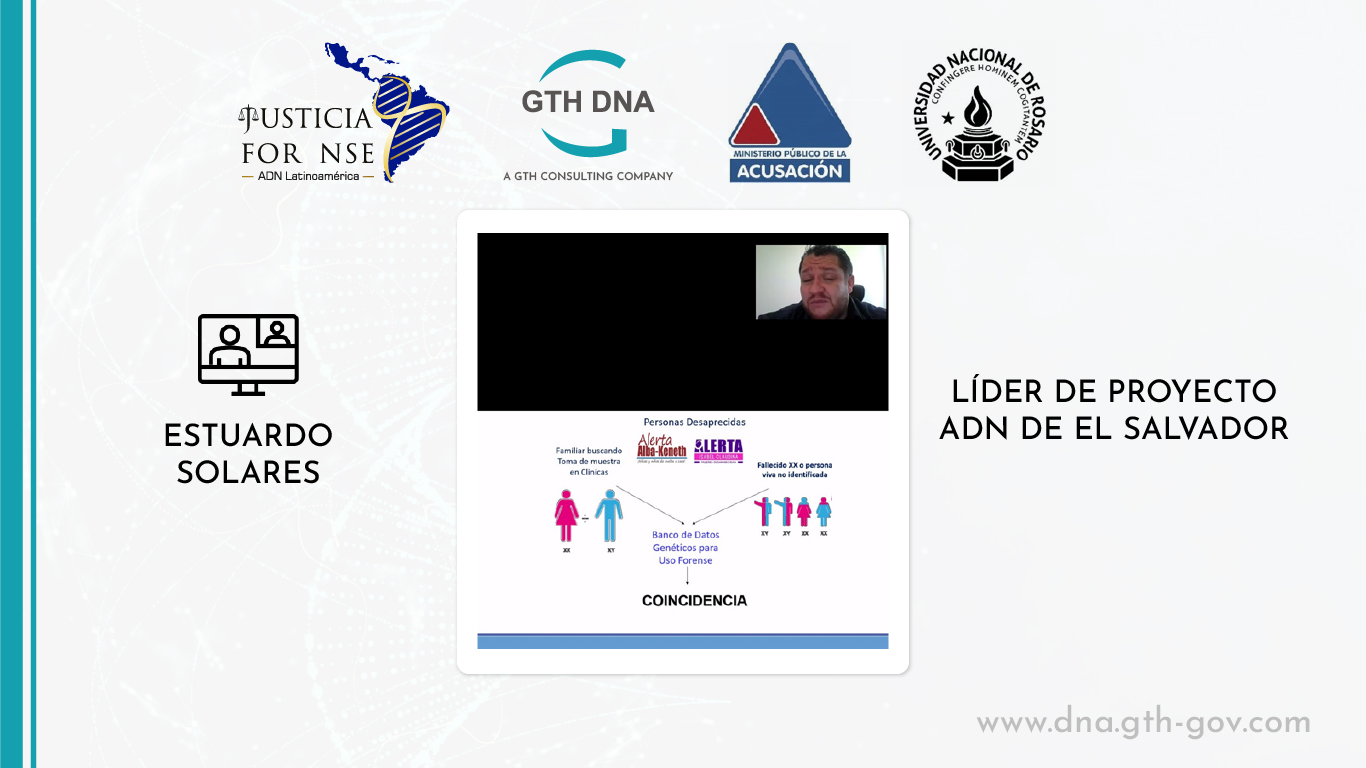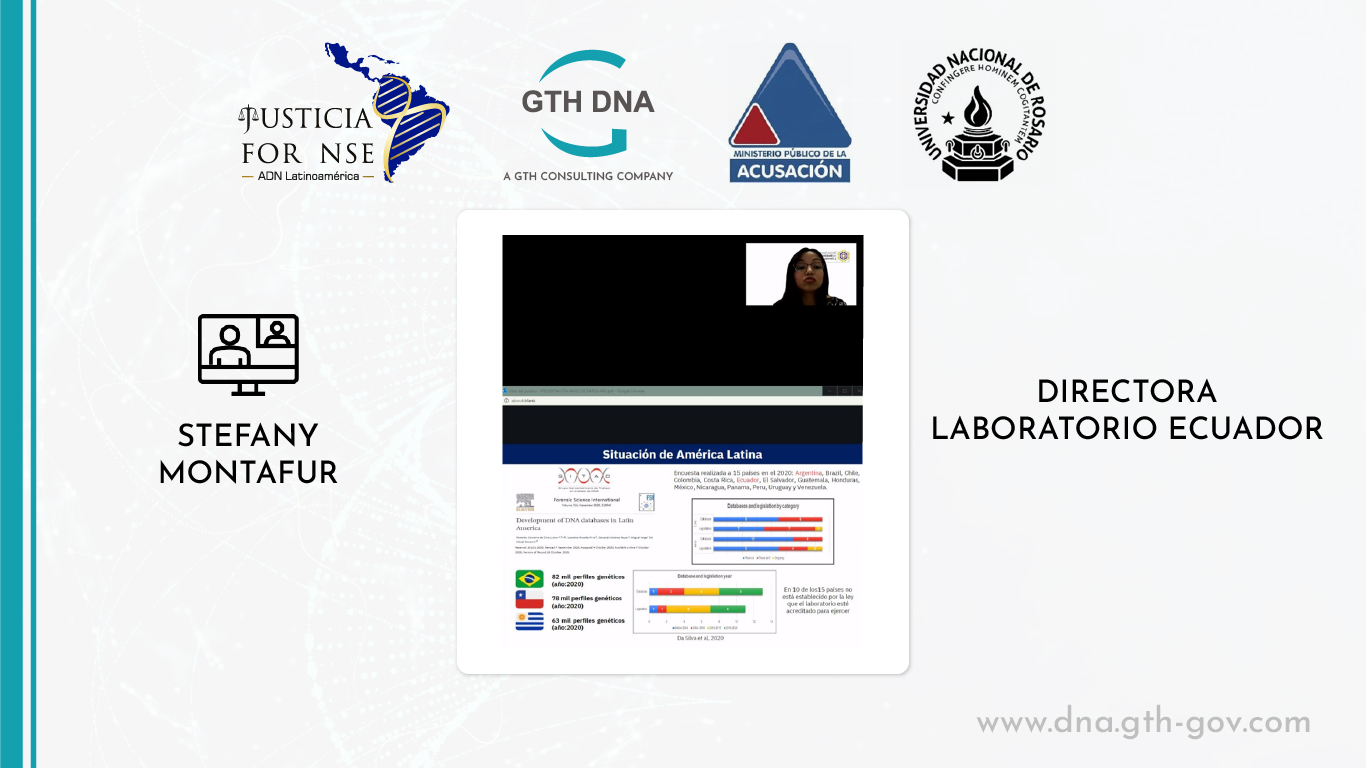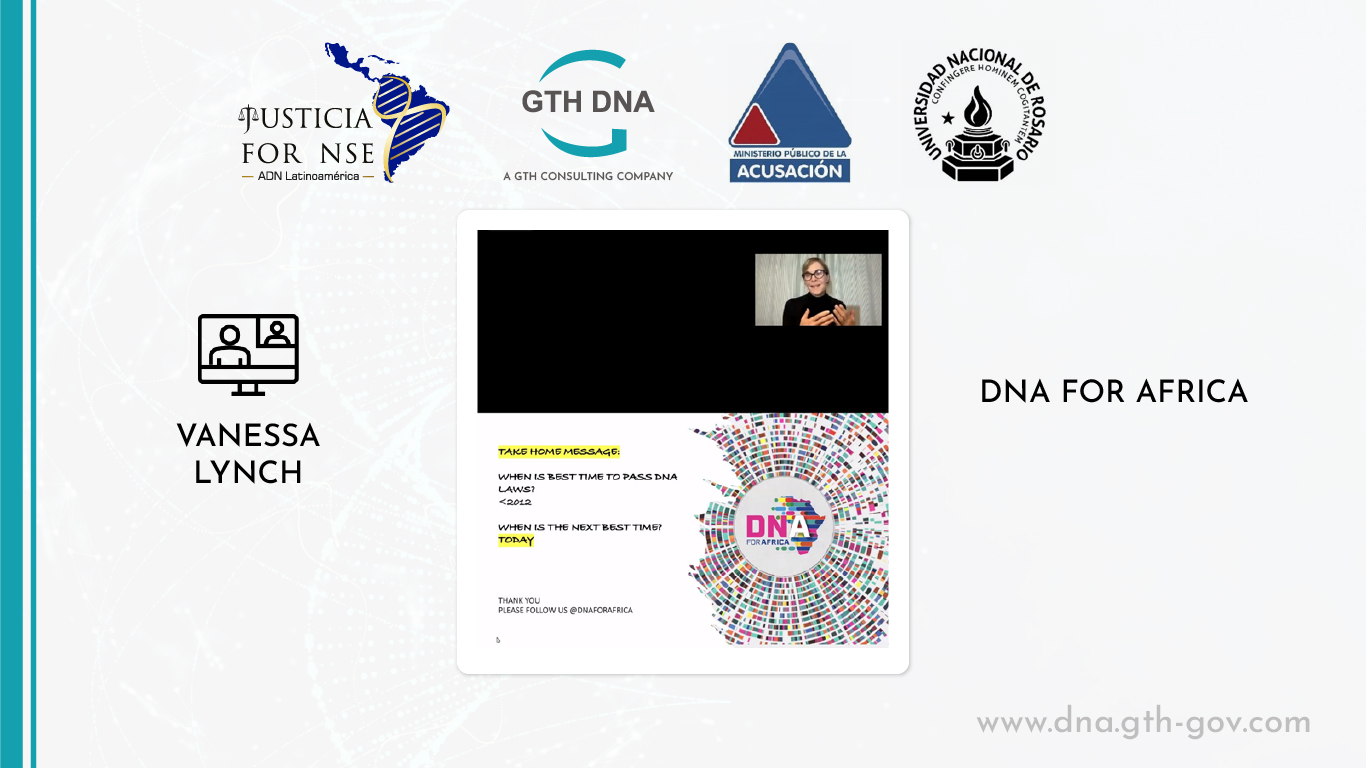Justicia Forense – DNA Latin America, a GTH-DNA project, held an international webinar on Thursday, March 30, 2023, in conjunction with the Public Prosecutor’s Office of the Province of Santa Fe, Argentina, and the National University of Rosario, between 5:00 p.m. and 7:30 p.m. Argentine time.
The objectives of this webinar focused on presenting to the audience the arguments why a criminal DNA database is an excellent tool for Criminal Policy. The public debate on the use of criminal DNA databases was also opened with the presentation of international speakers who spoke from their experience and serve as a guide for the advancement of policies in Argentina.
The event was opened by Kevin Mills, director for our region of the project Justicia Forense – DNA Latin America. The speakers included Vanessa Lynch, regional director of DNAforAfrica and senior government affairs consultant for GTH-DNA, based in South Africa; followed by a lecture by Stefany Montufar, expert in Forensic Genetics at the National Service of Legal Medicine and Forensic Sciences in the city of Guayaquil, Ecuador; and Estuardo Solares, currently forensic advisor for the American Embassy in El Salvador for the implementation of the DNA database and other forensic areas.
Finally, the event was closed with the words of the Attorney General of the Public Prosecution Office (MPA), Jorge Baclini, whom we thank for his commitment and support in our campaign. We know that one of the fundamental objectives of his institution has been to develop a strategic criminal prosecution of criminal acts, seeking the timely and peaceful management and resolution of conflicts, based on evidence and scientific tools. In this sense, Justicia Forense – DNA Latin America reiterates our willingness to cooperate with the Province of Santa Fe and seek truth and justice for the victims and other citizens.
In this webinar, 239 delegates from the Judiciary, Academia, Local Congress, Public Prosecutor’s Office and Police connected through the YouTube platform, along with several attendees from Colombia, Mexico, Peru and Chile. We thank them all for their participation and valuable questions.













 EL SALVADOR
EL SALVADOR HONDURAS
HONDURAS

 BOLIVIA
BOLIVIA PERÚ
PERÚ